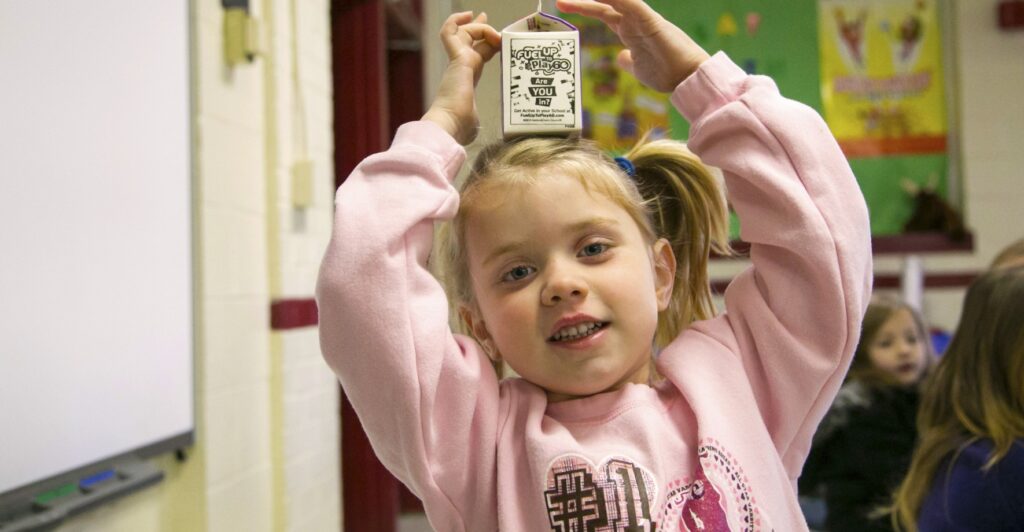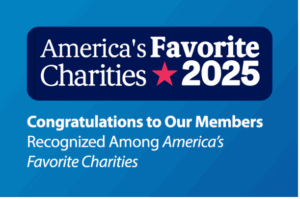No Kid Hungry | November 8, 2018
Food is the Most Important School Supply
 Every kid needs three meals a day to be healthy and do well in school. And for some kids, school is the best place to get those meals.
Every kid needs three meals a day to be healthy and do well in school. And for some kids, school is the best place to get those meals.
“Critics can say that the business of school is nothing but academics,” said Pam Davis, an elementary school principal. “But behind every course, behind every score, every percentage, there’s a child. And that child’s basic needs must be met. Those bodies need to be nourished.”
Pam’s school is Highland View Elementary, located in Bristol, Virginia, a small, working-class city on the Tennessee border. Bristol is one of the poorest places in the state; 38% of children there live in poverty. And Highland View serves children from the lowest-income neighborhoods in town.
Teachers at Highland View estimate that as many as half of their students might not have a meal after the school day ends.
“I’d say at least half my students aren’t getting dinner at night,” said Allie Kistner, who teaches kindergarten.
Almost every child who attends Highland View qualifies for free lunch. Because of this poverty, the school was one of 19 schools in Virginia selected for a pilot project. For the past two years, No Kid Hungry, along with the state department of education and other partners, made sure that every child at Highland View got three meals a day: breakfast served in the classroom, a free lunch and an evening meal served before the children leave school for the day. Each child also received a bag of food on Friday afternoon to take home for the weekend.
The official results of the project aren’t in yet, but principals at the schools say they’ve seen real changes in test scores, attendance and behavior. Teachers at Highland View are particularly enthusiastic about the afterschool meal.
“The kids aren’t stressing where their next meal’s coming from,” said Christy Haworth, who teaches third grade. “They know that when they get here they have breakfast, they have lunch, they have third meal. So they’re not constantly worried about what they’re going to eat.”
Walking the halls of Highland View, you are struck by the intimacy and familiarity students have with the teachers and staff. Many children, especially the smaller ones, embrace the school police officer or the receptionist as they come off the bus. Teachers wipe noses and straighten backpacks; they help kids whose shoes are untied or on the wrong feet, or who need a clean shirt to wear.
Because of the poverty the students face, and the problems that come with it, not every teacher is willing to take a job at Highland View. Many substitute teachers are reluctant to pick up work at the school. The teachers who choose to work here, Davis said, feel called to help.
“We do that because that’s our job, that’s our mission,” she said. “These children can learn. They can be successful. They need our support.”
“We feed our children here. And we’ve taken this mission on because it’s the right thing to do for our children and our families. Our families are working hard. Our families need our support. It is our responsibility to help one another. We are a community.”
Support No Kid Hungry through your employee giving program:
As a donor, you can support No Kid Hungry by donating to them through your employer’s workplace giving program (CFC#11158 if you’re a military or federal employee participating in the Combined Federal Campaign). Payroll pledges made through employer-sponsored charitable giving programs represent a cost effective and near effortless way to support your favorite charities.
As No Kid Hungry’s workplace giving partner, America’s Charities can help your company design and implement a program centered on supporting their work – through workplace giving campaigns, employee fundraising, cause-focused signature programs, volunteerism, donation drives, matching gifts, Dollars-for-Doers, In-Kind Giving and other employee engagement and philanthropic initiatives. Click here to request a demo and learn how we can help you do this.

Get Resources and Insights Straight To Your Inbox
Explore More Articles
Congratulations to Our Members Recognized Among America’s Favorite Charities
Each year, The Chronicle of Philanthropy releases its list of America’s Favorite Charities—the 100 nonprofits that raise the most from individual donors, foundations, and corporate…
Read ArticleThe Future of Corporate Giving: How Nonprofits Can Prepare
Corporate giving is a valuable part of the nonprofit funding ecosystem. Companies large and small have incorporated philanthropic efforts into their overall business plans, from…
Read ArticleJoin Us at the Workplace Fundraising & Volunteering Summit!
We’re excited to announce that America’s Charities President, Jim Starr, and Board Member, Fernando Lorence of JP Morgan Chase, will be speaking at the Workplace…
Read ArticleGet Resources and Insights Straight To Your Inbox
Receive our monthly/bi-monthly newsletter filled with information about causes, nonprofit impact, and topics important for corporate social responsibility and employee engagement professionals, including disaster response, workplace giving, matching gifts, employee assistance funds, volunteering, scholarship award program management, grantmaking, and other philanthropic initiatives.




